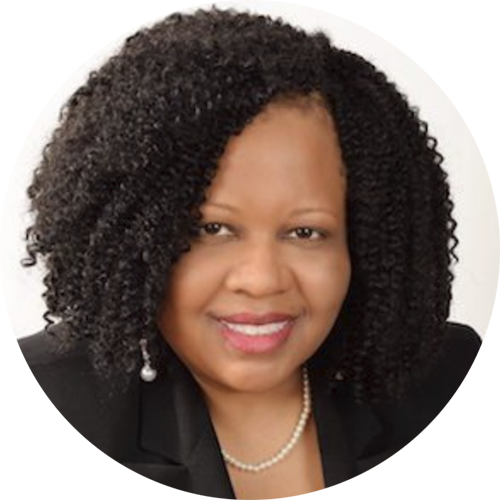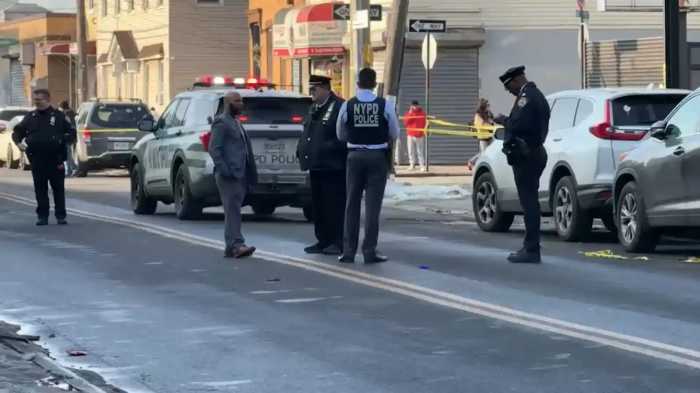Assemblymember Mathylde Frontus (D-Coney Island, Bay Ridge, Dyker Heights, Brighton Beach) yesterday launched an ambitious 6-point economic mobility plan targeting the Southern Brooklyn residents trapped in cycles of intergenerational poverty and hit hard by the coronavirus pandemic.
The plan focuses on homeownership, job training, financial planning, entrepreneurship, cooperative economics and community investment.

Where economic development initiatives have often favored large, high-cost and high-profile projects that attract wealthy investors, Frontus said building a financial infrastructure in underserved areas will enable economic mobility. The conditions of deeply distressed neighborhoods undermine individual efforts at economic advancement, Frontus said. The plan is meant to help residents generate income and build wealth.
“For most New Yorkers, the economic mobility we’re experiencing now is headed in the wrong direction,” Frontus said. “We’ve learned this lesson the hard way after the housing crisis and after Hurricane Sandy. Without a comprehensive plan to help those who have suffered economically during this crisis – many of whom were already struggling – families might never recover.”
Frontus noted even before the COVID-19 outbreak, nearly one in four of Coney Island’s 50,000 residents lived in poverty, and about a third earned less than $20,000 a year. One in six Coney Island residents also live in New York City Housing Authority (NYCHA) buildings, many have which are still awaiting repair eight years after Hurricane Sandy.
By partnering with business groups and service agencies to leverage local expertise, Frontus seeks to help Southern Brooklyn residents through each step of the process of restructuring debt, purchasing a home, starting a business, or completing job training. In Coney Island in particular, many businesses are facing an existential threat after the pandemic shut down much of the summer tourist season.
The six-point plan includes:
- Career Readiness & Training
Frontus will coordinate with local institutions including Kingsborough Community College to provide career readiness programs, and is recruiting organizations to assist in implementing New York City’s Community Hiring Initiative. - Entrepreneurship
NYC Small Business Services and NYC Business Solutions will provide entrepreneurship training, workshops and individual consultations for those seeking to start a small business. - Home Ownership Assistance
Homeownership is the cornerstone of intergenerational family wealth. The ability to purchase a house largely accounts for the racial wealth gap today. From 1934 to 1962, the federal government backed $120 billion in home loans, with 98% going to white homebuyers. In 2017, The New York Times found that for every $100 in white family wealth, black families held just $5.04. Frontus is partnering with the Neighborhood Assistance Corporation of America and Neighborhood Housing Services to assist first-time homebuyers. - Financial Planning: Many neighborhoods, particularly in eastern Coney Island, lack access to a bank. Last year’s closing of the Municipal Credit Union’s Coney Island branch made it more difficult for members to access basic financial services. Frontus is collaborating with New Economy Project to provide workshops on financial justice, banking rights and banking alternatives. In addition, Frontus will coordinate with Restoration Plaza – Financial Empowerment Center to help residents with financial planning, particularly in building and repairing credit and reducing debt.
- Cooperative Economics: Creation of Cooperative small business development centers, workers’ organizations, and lending programs all can keep money circulating within and among neighborhoods. By pooling their resources, multi-generational households and entire neighborhoods can leverage scarce dollars for the greater good of the community. Frontus is partnering with the New Economy Project to assist residents in supporting cooperative and community-controlled development.
- Community Investment Opportunities
Economic development that generates profit for the benefit of remote investors ultimately undermines communities, Frontus said. By investing in local business initiatives, Frontus said residents can help ensure that money circulates within the community generating the economic activity. Frontus will also identify businesses within her district willing to provide community investment opportunities.

The plan also drew the praise of former Assemblymember and current Coney Island City Council Candidate Alec Brook-Krasny, an early supporter of Frontus, when she first ran an underdog campaign for the assembly.
“I am going to support this plan full steam. It is a great thing looking into the future,” said Brook-Krasny. “I would also add an interracial education piece. We have Russians who have come into this neighborhood in the last 30 or 40 years, but very few of whom know the American history of 40-50 years ago. They need to know that at the same time this country was sending people to the moon, blacks were forced to sit in the back of the bus. We still need to educate these people as to why Black people are still fighting for a better place in America.
“We have to create some kind of program that educates people about each other,” he added.






